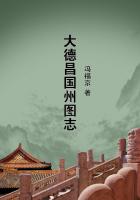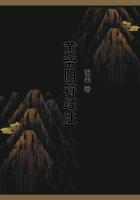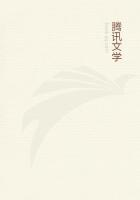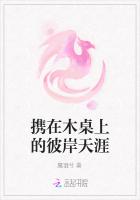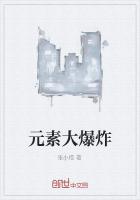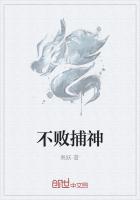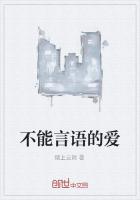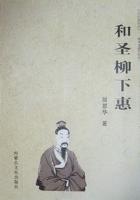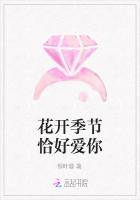But it is exact to say that this wounded genius was, by a singular circumstance, the genius of a robust man. A physiologist would without doubt explain this anomaly by the coexistence of a nervous lesion, light at first, with a muscular, athletic temperament. Whatever the cause, the effect is undeniable. The skilled and dainty pessimism of De Maupassant was accompanied by a vigor and physique very unusual. His sensations are in turn those of a hunter and of a sailor, who have, as the old French saying expressively puts it, "swift foot, eagle eye," and who are attuned to all the whisperings of nature.
The only confidences that he has ever permitted his pen to tell of the intoxication of a free, animal existence are in the opening pages of the story entitled "Mouche," where he recalls, among the sweetest memories of his youth, his rollicking canoe parties upon the Seine, and in the description in "La Vie Errante" of a night spent on the sea,--"to be alone upon the water under the sky, through a warm night,"--in which he speaks of the happiness of those "who receive sensations through the whole surface of their flesh, as they do through their eyes, their mouth, their ears, and sense of smell."His unique and too scanty collection of verses, written in early youth, contains the two most fearless, I was going to say the most ingenuous, paeans, perhaps, that have been written since the Renaissance: "At the Water's Edge" (Au Bord de l'Eau) and the "Rustic Venus" (La Venus Rustique). But here is a paganism whose ardor, by a contrast which brings up the ever present duality of his nature, ends in an inexpressible shiver of scorn:
"We look at each other, astonished, immovable, And both are so pale that it makes us fear."*******
"Alas! through all our senses slips life itself away."This ending of the "Water's Edge" is less sinister than the murder and the vision of horror which terminate the pantheistic hymn of the "Rustic Venus." Considered as documents revealing the cast of mind of him who composed them, these two lyrical essays are especially significant, since they were spontaneous. They explain why De Maupassant, in the early years of production, voluntarily chose, as the heroes of his stories, creatures very near to primitive existence, peasants, sailors, poachers, girls of the farm, and the source of the vigor with which he describes these rude figures. The robustness of his animalism permits him fully to imagine all the simple sensations of these beings, while his pessimism, which tinges these sketches of brutal customs with an element of delicate scorn, preserves him from coarseness. It is this constant and involuntary antithesis which gives unique value to those Norman scenes which have contributed so much to his glory. It corresponds to, those two contradictory tendencies in literary art, which seek always to render life in motion with the most intense coloring, and still to make more and more subtle the impression of this life. How is one ambition to be satisfied at the same time as the other, since all gain in color and movement brings about a diminution of sensibility, and conversely? The paradox of his constitution permitted to Maupassant this seemingly impossible accord, aided as he was by an intellect whose influence was all powerful upon his development--the writer I mention above, Gustave Flaubert.
These meetings of a pupil and a master, both great, are indeed rare. They present, in fact, some troublesome conditions, the first of which is a profound analogy between two types of thought. There must have been, besides, a reciprocity of affection, which does not often obtain between a renowned senior who is growing old and an obscure junior, whose renown is increasing. From generation to generation, envy reascends no less than she redescends. For the honor of French men of letters, let us add that this exceptional phenomenon has manifested itself twice in the nineteenth century. Merimee, whom I have also named, received from Stendhal, at twenty, the same benefits that Maupassant received from Flaubert.
The author of "Une Vie" and the writer of "Clara Jozul" resemble each other, besides, in a singular and analogous circumstance.
Both achieved renown at the first blow, and by a masterpiece which they were able to equal but never surpass. Both were misanthropes early in life, and practised to the end the ancient advice that the disciple of Beyle carried upon his seal: <gr memneso apistein>--"Remember to distrust." And, at the same time, both had delicate, tender hearts under this affectation of cynicism, both were excellent sons, irreproachable friends, indulgent masters, and both were idolized by their inferiors.
Both were worldly, yet still loved a wanderer's life; both joined to a constant taste for luxury an irresistible desire for solitude. Both belonged to the extreme left of the literature of their epoch, but kept themselves from excess and used with a judgment marvelously sure the sounder principles of their school.
They knew how to remain lucid and classic, in taste as much as in form--Merimee through all the audacity of a fancy most exotic, and Maupassant in the realism of the most varied and exact observation. At a little distance they appear to be two patterns, identical in certain traits, of the same family of minds, and Tourgenief, who knew and loved the one and the other, never failed to class them as brethren.
They are separated, however, by profound differences, which perhaps belong less to their nature than to that of the masters from whom they received their impulses: Stendhal, so alert, so mobile, after a youth passed in war and a ripe age spent in vagabond journeys, rich in experiences, immediate and personal;Flaubert so poor in direct impressions, so paralyzed by his health, by his family, by his theories even, and so rich in reflections, for the most part solitary.

